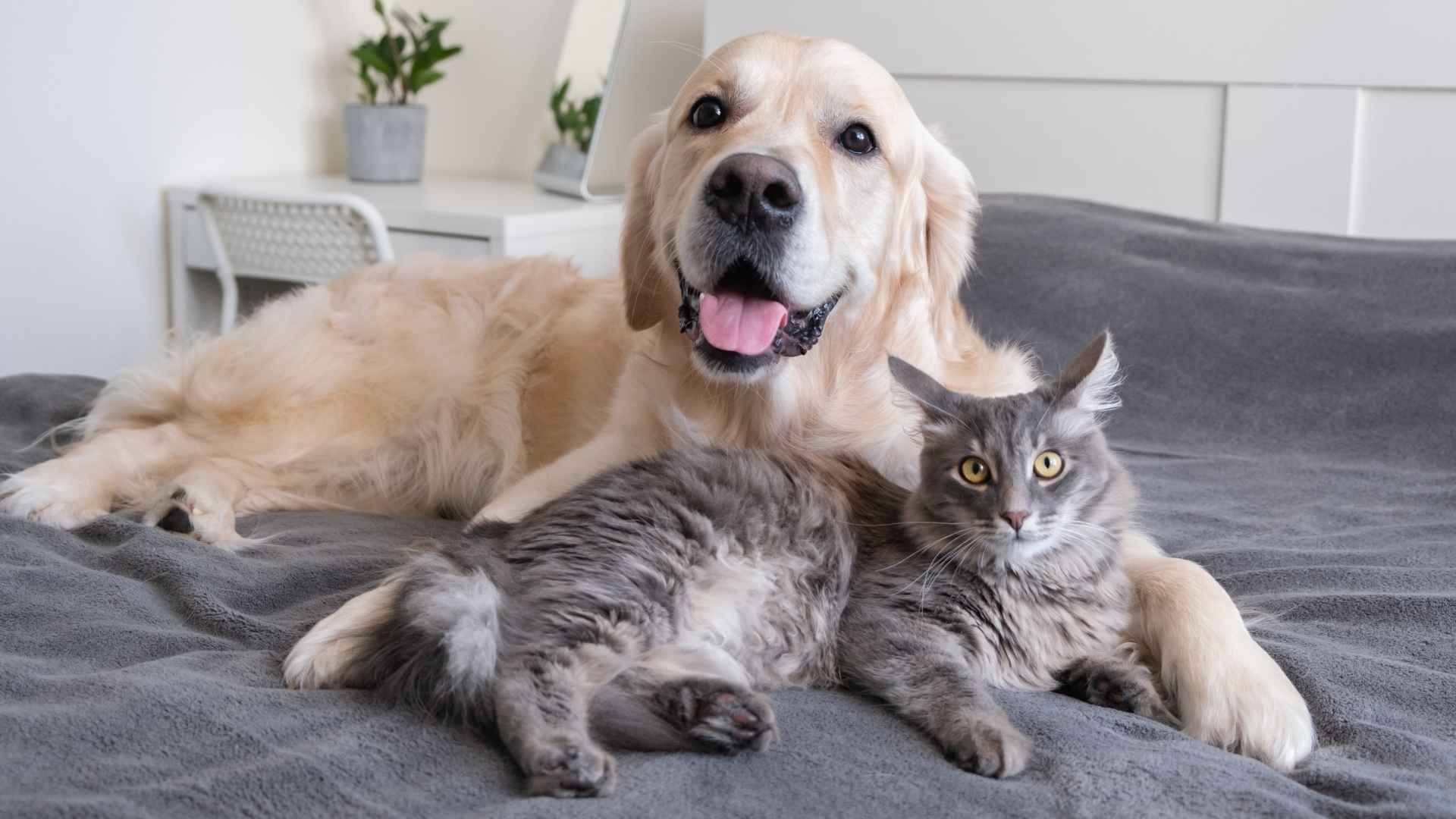Cats and dogs are often cast as lifelong rivals, but the truth is far more harmonious. Many dogs can learn to live peacefully with feline companions, and some even form deep, lasting bonds. For pet lovers who adore both species, the key lies in choosing the right dog breed with a temperament that matches your cat’s personality and tolerance levels.
While proper introductions and supervised interactions are essential, a dog’s breed plays a major role in the success of this interspecies friendship. Some breeds were historically developed with instincts that can complicate the dynamic, like Terriers with their prey drive, or Hounds and Herding dogs that may see a darting cat as something to chase or corral. These instinctual behaviors, while natural, may not always mix well with a household cat.
Fortunately, many dog breeds are known for being cat-friendly. Many breeds tend to be gentle, social, and adaptable, making them ideal companions for a multi-species household. This article explores dog breeds that are most likely to bond with cats and help bring peace to your pet-loving home.
Dog Breeds That Bond With Cats
1. Golden Retriever
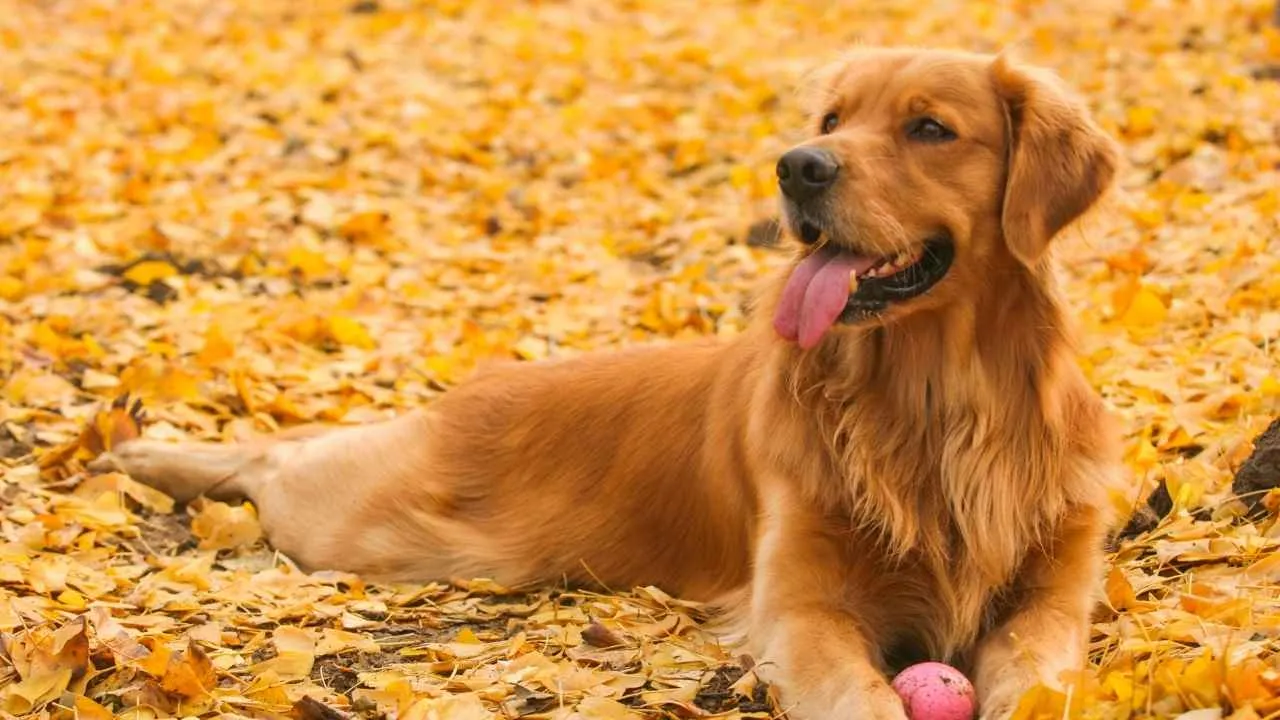
When it comes to integrating a dog into a feline household, Golden Retrievers consistently top the list for getting along well with cats. Their adaptable nature and sociable demeanor help them form strong bonds not just with humans but with other pets, including cats.
These dogs are naturally gentle and empathetic, often accepting cats as part of their pack. While early training is essential to discourage any chasing behaviors, Golden Retrievers are typically quick learners and eager to please, making the adjustment smoother.
Temperament
Golden Retrievers are cheerful, patient, and affectionate, traits that make them ideal companions for multi-pet homes. They’re not only friendly with people and other dogs but tend to extend that warmth to cats as well.
While they do require at least an hour of daily exercise, their energy is balanced by an easygoing attitude. According to Britannica, the breed needs mental engagement and thrives on activities like agility training, interactive play, and fieldwork such as pointing, tracking, flushing game, and retrieving.

Their playful yet non-aggressive personality allows for peaceful cohabitation with cats, especially when properly introduced and socialized.
Fun Fact: The Golden Retriever was developed in 19th-century Scotland as a gundog and water retriever, and it remains one of the most popular breeds in the U.S. today.
2. Labrador Retriever
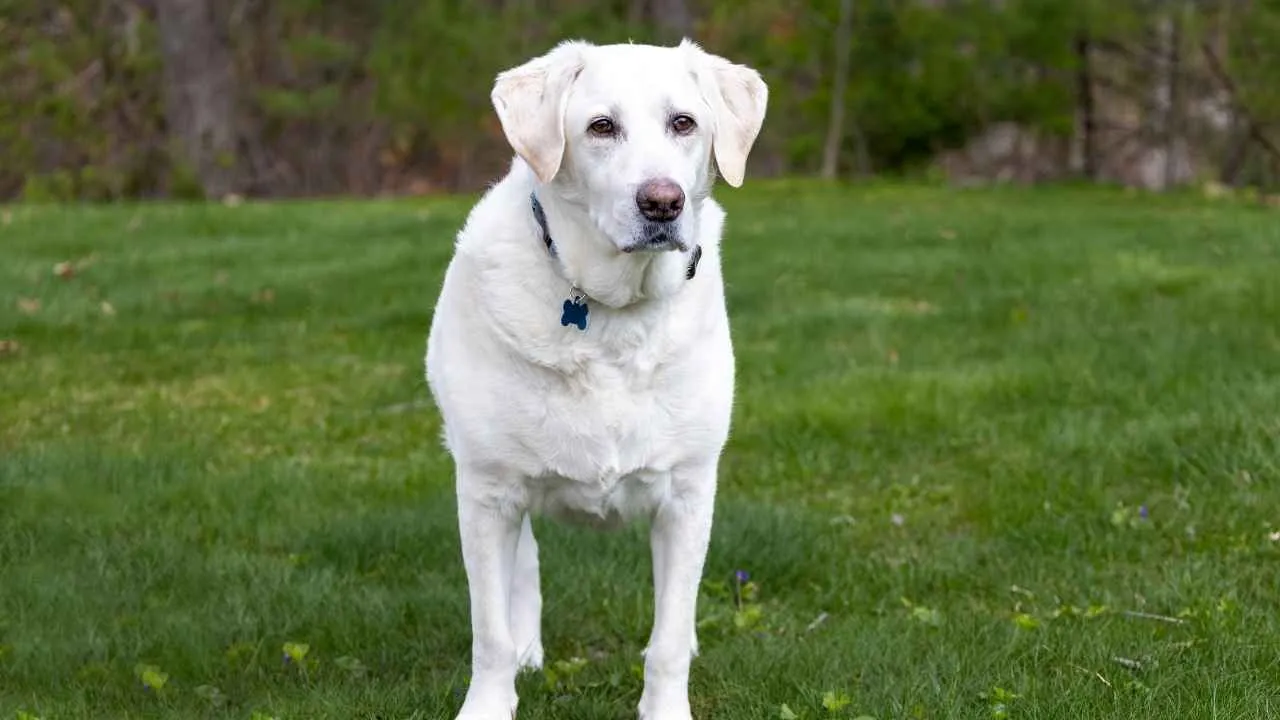
They are friendly, adaptable, and overflowing with affection. AKC describes the Labrador Retriever as energetic, sociable, and cheerful. Their laid-back nature and sociable temperament make them excellent additions to households that already include a feline friend.
While they may be considerably larger than most cats, typically weighing between 55 and 80 pounds, they’re gentle giants at heart and are more than happy to share their home, toys, and even nap spots.
Temperament
Labradors are famously outgoing and eager to please. These intelligent dogs thrive on companionship and quickly form bonds with both people and other animals.
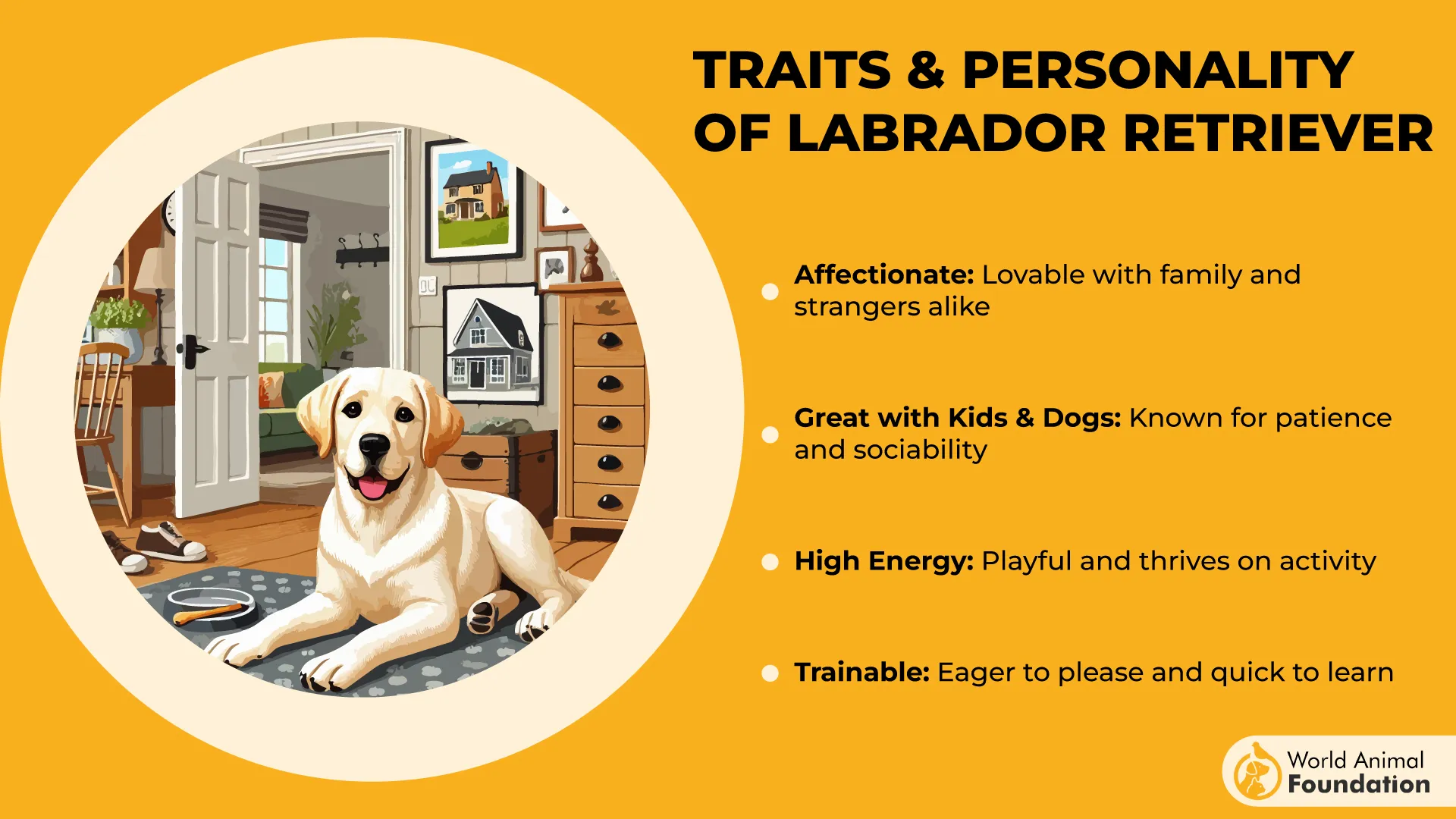
Their easygoing attitude helps them accept cats as part of the family, though early socialization and training are key to ensuring a calm and respectful dynamic.
While Labs have high energy and require plenty of physical activity, their affectionate, tolerant nature allows for peaceful, playful cohabitation, so long as the cat is on board, too.
Fun Fact: The Labrador Retriever consistently ranks as one of America’s most popular breeds, known for its friendly personality and athleticism.
3. Beagle

While it’s best to avoid having multiple Beagles in a cat-friendly household (as they may fall into a pack mentality), a single well-socialized Beagle can be a loving and accepting sibling to a resident cat.
Beagles are great companions for families and energetic owners, as per PetMD. However, they require plenty of stimulation and oversight, as their strong sense of smell can often lead them into mischief.
Temperament
Beagles are affectionate, fun-loving dogs with an innate curiosity and zest for life. Their easygoing nature makes them highly adaptable to multi-pet environments, especially when introduced to cats at an early age.
While they are energetic and need about an hour of daily exercise, their friendliness and non-aggressive demeanor make them excellent companions.
However, they are scent-driven and may get distracted by interesting smells, so supervision is key during initial interactions. With consistent socialization, Beagles often form warm, lasting bonds with feline friends.
Fun Fact: Beagles were bred to hunt in packs, which helps explain their natural tendency to bond with other animals, even cats.
4. Pug
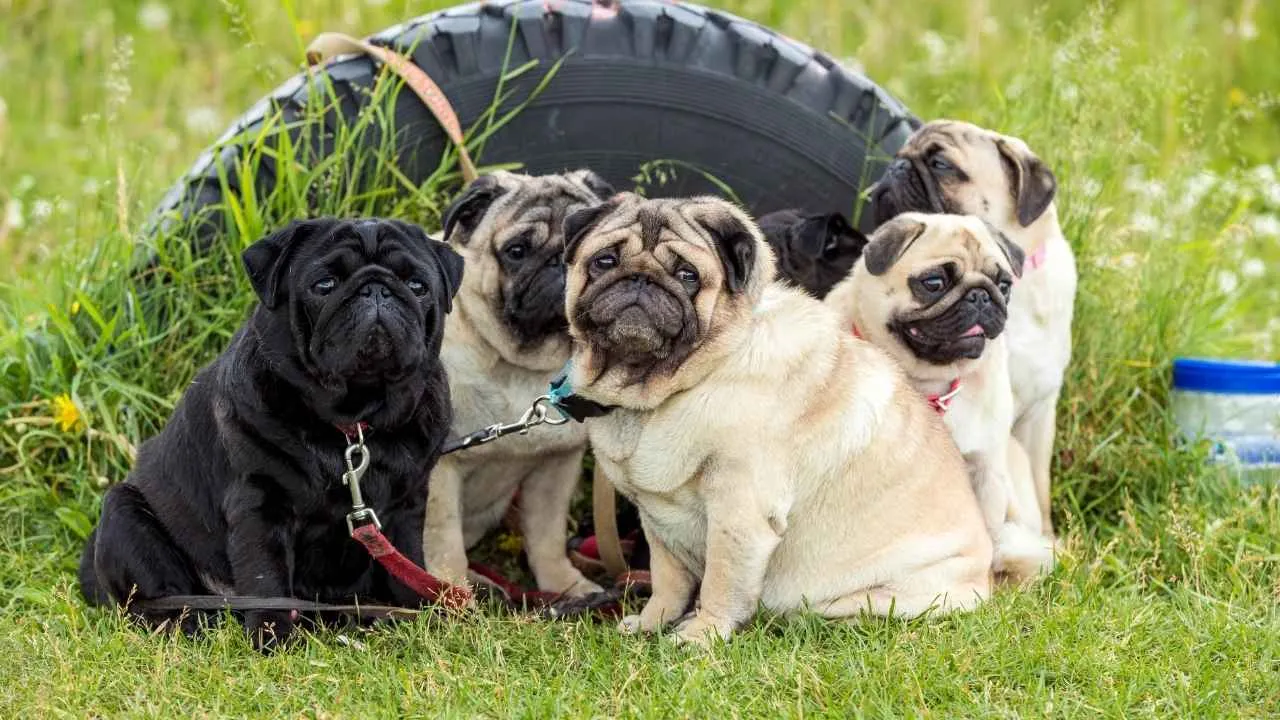
These small, lovable dogs thrive on companionship and have a natural affinity for bonding, not just with humans, but also with other animals. Their mellow demeanor and playful charm make them a great match for cats, especially those with a relaxed or curious nature.
Since Pugs were bred solely for companionship, they tend to seek out affection and company, rather than conflict or dominance. According to PDSA, owning a Pug will cost at least £50 per month following the initial purchase and setup expenses, totaling over £8,900 throughout its lifetime.
Temperament
Pugs are sociable, affectionate, and endlessly amusing. Their clownish behavior and gentle disposition allow them to integrate well into family life, including with feline housemates.
Though they are intelligent and enjoy interactive play, Pugs are also low-energy and content to nap beside their favorite furry friend. Their small size and easygoing nature reduce the risk of overwhelming a cat during introductions.
However, it’s important to supervise exercise and play, especially in warm weather, due to their flat-faced anatomy and sensitivity to overheating.
Fun Fact: Pugs were originally bred as royal companions in Ancient China and were once owned exclusively by emperors.
5. Bichon Frise
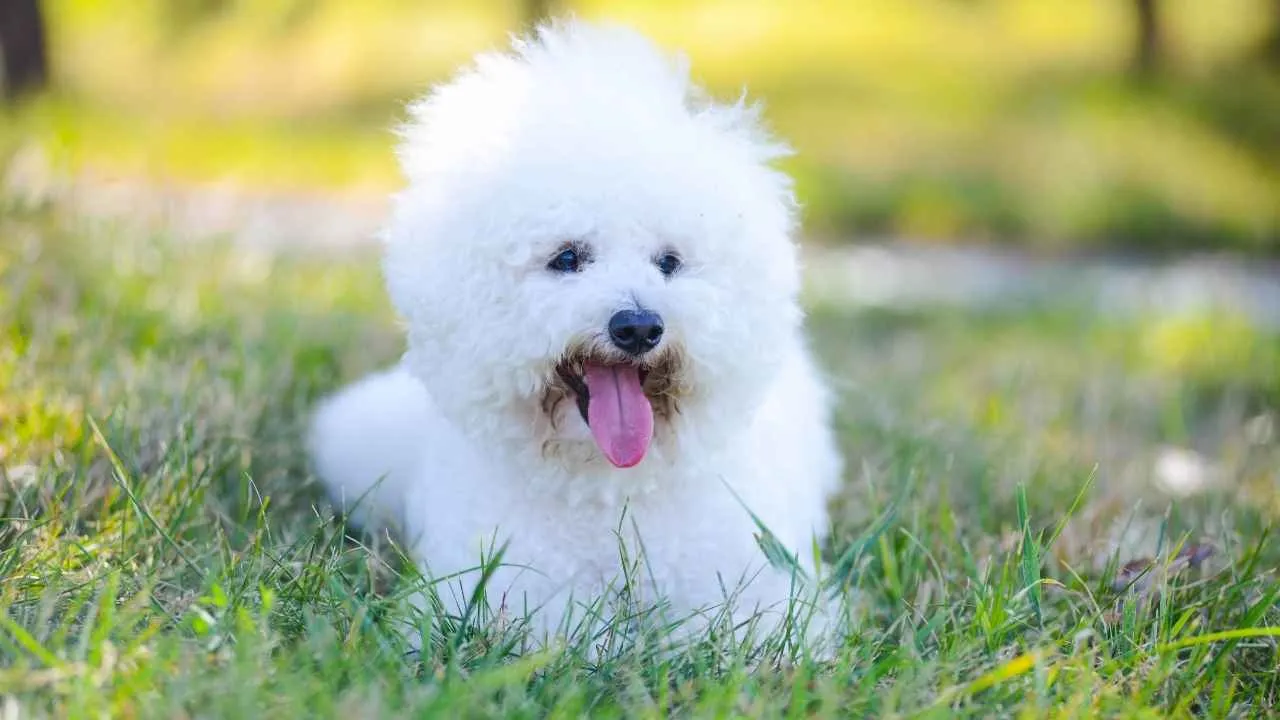
With their irresistibly fluffy coats and cheerful personalities, Bichon Frises are natural charmers. These small, non-sporting dogs are full of energy and curiosity, making them eager to befriend just about anyone, including cats.
Because of their playful nature, Bichons are often more likely to see cats as fun partners in play than as rivals. That said, their exuberance might be a bit much for more reserved or anxious felines, so proper introductions and patience are key.
Temperament
Bichon Frises are joyful, affectionate, and socially inclined. Purina describes the Bichon Frise as a cheerful and energetic small dog that thrives in a family environment. They love attention and thrive in active households where they can interact with both people and pets.
While they can be the life of the party, they also adapt well to quieter moments and can be trained to enjoy some independence. Their naturally happy demeanor and gentle approach make them excellent companions for cats who are tolerant or playful themselves.
Fun Fact: The breed’s name, Bichon Frise, comes from the French phrase “bichon à poil frisé,” meaning “curly-haired small dog.”
6. Shetland Sheepdog
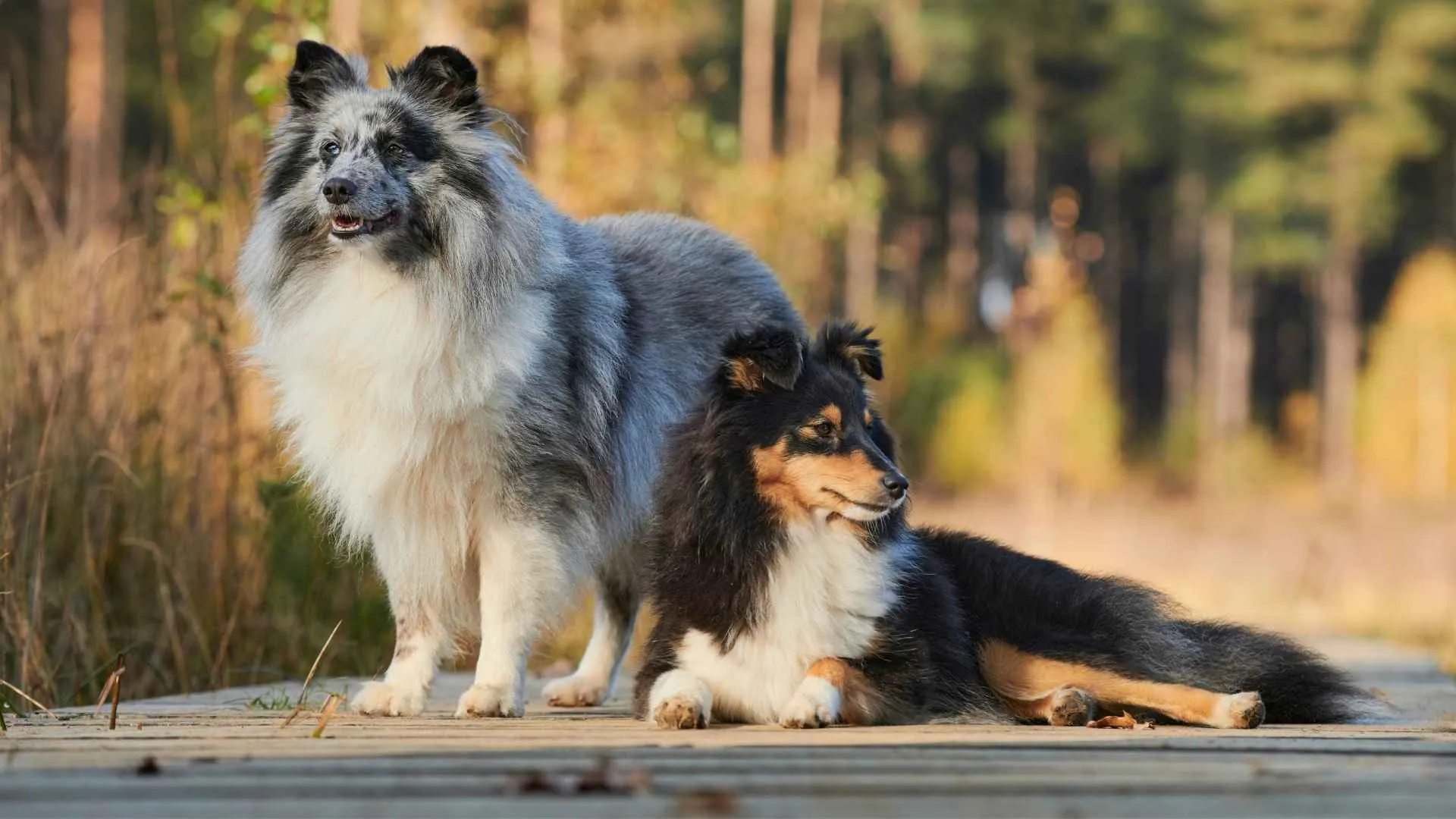
The Shetland Sheepdog, or “Sheltie,” is a bright and affectionate herding breed. With their small size, typically standing 13 to 16 inches tall, and friendly disposition, Shelties are known to bond deeply with all members of the household.
Though they come from a working background, their intelligence and eagerness to please make them highly trainable when it comes to adjusting their instincts around other pets.
Temperament
Shelties are sensitive, loyal, and perceptive companions. Their emotional intelligence helps them tune into the vibe of the home, and they respond well to positive reinforcement, making early training with cats highly effective.
While their herding roots might cause the occasional urge to “round up” their feline housemates, proper exercise and enrichment can redirect this behavior. Shelties do have a tendency to bark, especially when bored, but the presence of a cat may help ease their need for constant stimulation.
Fun Fact: The Shetland Sheepdog hails from Scotland’s Shetland Islands and resembles a miniature Rough Collie, with the same luxurious coat and sharp mind.
7. Basset Hound
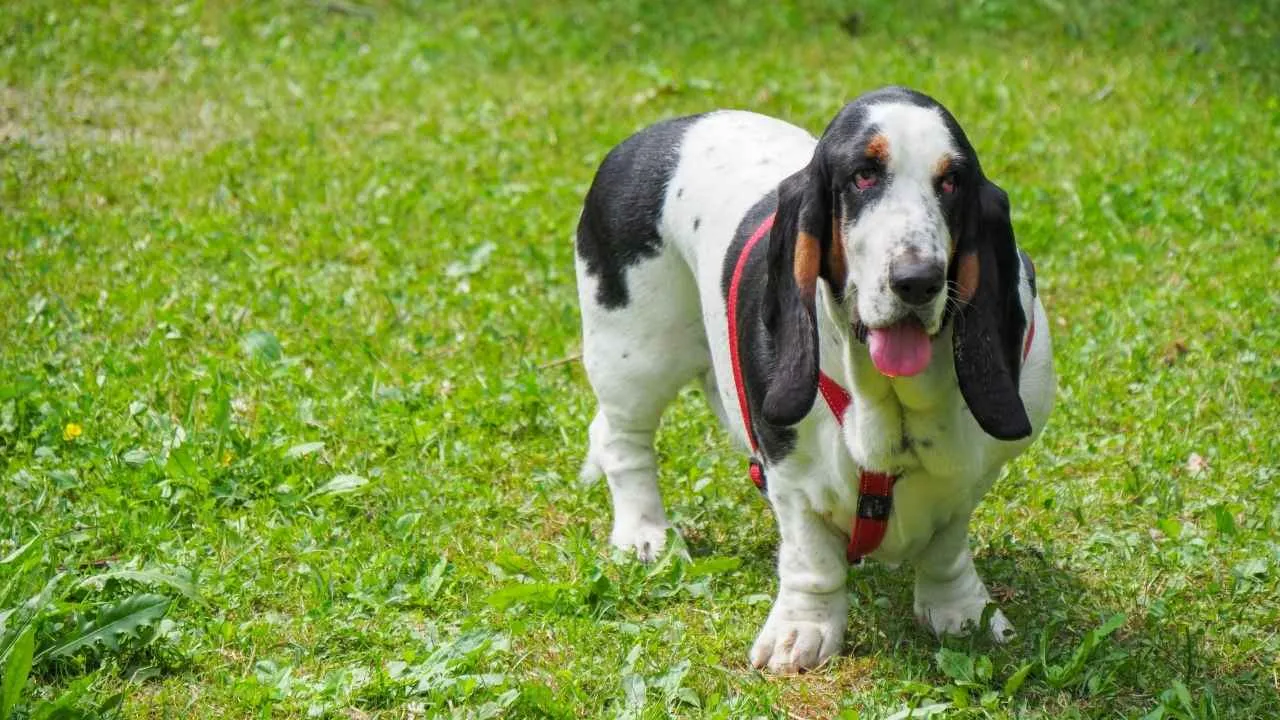
Their calm demeanor and slow-paced lifestyle help minimize friction during early introductions, and their patience makes them particularly tolerant companions.
While they were originally bred in France for tracking small game, Basset Hounds are more inclined to nap on the couch than chase after a feline roommate.
Temperament
Basset Hounds are loyal, gentle, and affectionate. Their low-key attitude makes them less likely to overwhelm or intimidate a cat, and their naturally sociable nature encourages peaceful interactions.
Though training can be a bit tricky due to their stubborn hound instincts, their overall friendliness and tolerance usually prevail. Just keep in mind that while they’re mellow, they do need daily walks and mental stimulation to stay healthy and content.
Fun Fact: The name “Basset” comes from the French word for “low-set,” a fitting description for this short, sturdy breed originally descended from the St. Hubert Hound.
8. Poodle
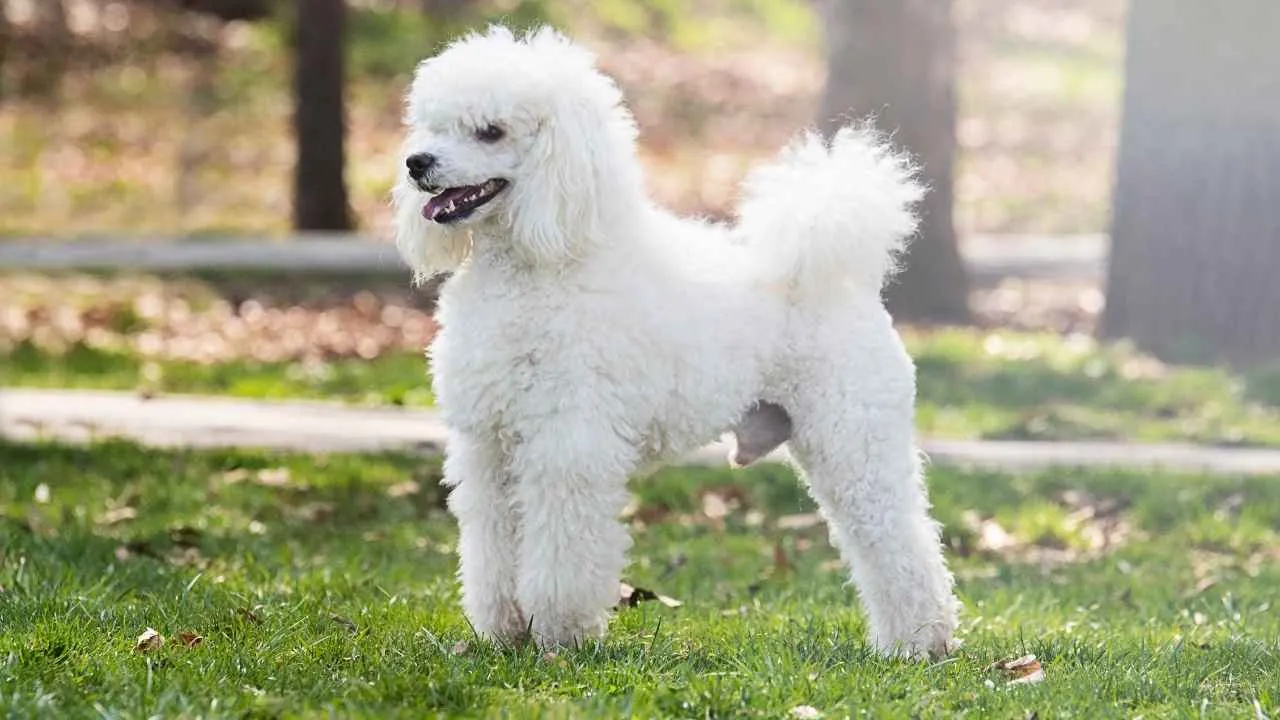
With intelligence that rivals most breeds and a sensitivity to their surroundings, Poodles make excellent companions for households with cats. Available in Toy, Miniature, and Standard sizes, there’s a Poodle to fit almost any home, and each size tends to interact with cats in slightly different ways.
Toy Poodles often initiate playful interactions, Miniatures tend to be more tolerant, and Standards typically adopt a “live and let live” approach. Thanks to their adaptable and perceptive nature, Poodles are quick to read feline moods and adjust their behavior accordingly.
Temperament
Poodles are affectionate, loyal, and incredibly smart. Their eager-to-please attitude and emotional awareness make them well-suited for multi-pet households.
While they’re generally sociable, early socialization is key, especially for the smaller varieties, which can sometimes be wary of unfamiliar people or pets.
Regular physical activity and mental stimulation help Poodles stay balanced, reducing the likelihood of unwanted behaviors. Their non-shedding coat also makes them a great option for tidy, allergy-conscious homes.
Fun Fact: Poodles are actually hunting dogs at heart; despite their posh appearance, they’re active, agile, and thrive when given structure and engagement.
9. Maltese
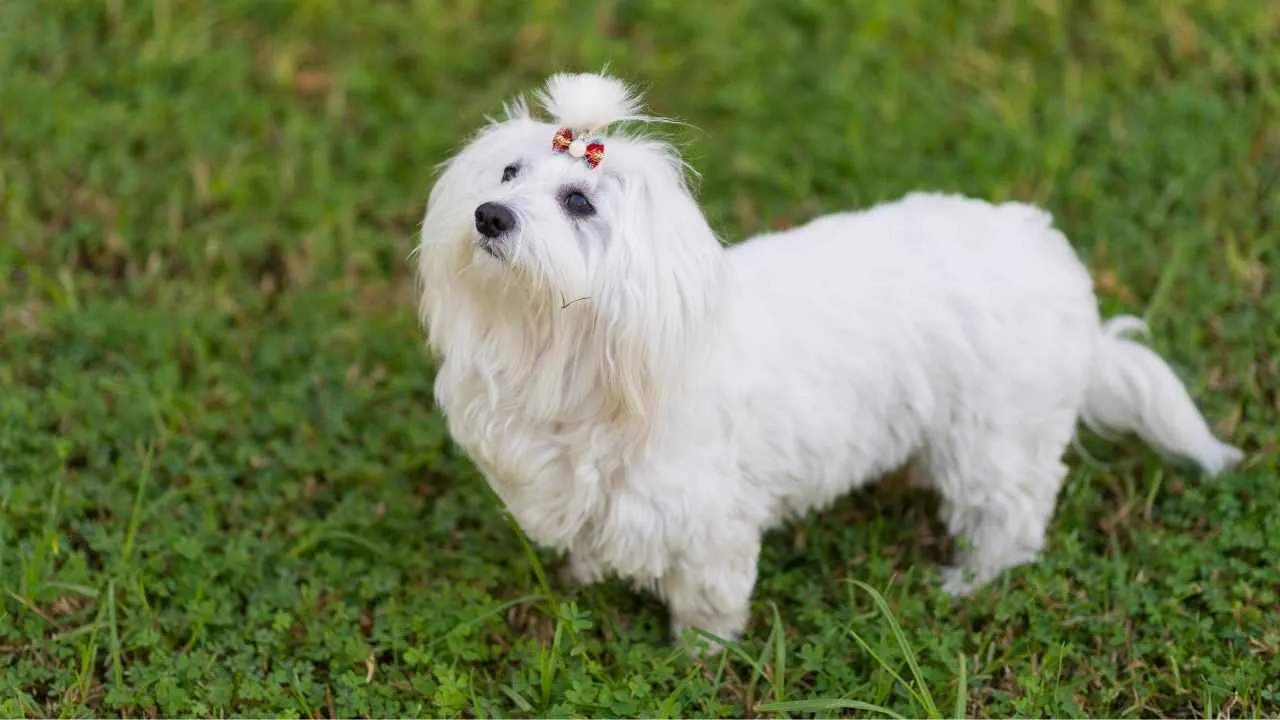
This petite companion, typically weighing under 7 pounds, is known for its flowing white coat and cheerful disposition.
With a laid-back approach to life and minimal exercise needs, the Maltese easily fits into households with cats. Rather than causing chaos, this breed tends to mind its own business or find a cozy spot on the couch to nap beside its feline friend.
Temperament
The Maltese is lively yet mellow, known for its sweet-natured and sociable personality. While it enjoys playtime and gentle activities, it’s just as content being a lap companion.
Their gentle nature makes them unlikely to provoke or chase, though supervision is advised, especially with a mischievous cat that might tug at their long hair.
Because of their sensitivity to cold and preference for warmth, a Maltese might even become your cat’s favorite snuggle partner.
Fun Fact: The Maltese dates back to Ancient Greece and Rome and has served as a cherished lapdog for centuries.
10. Boston Terrier
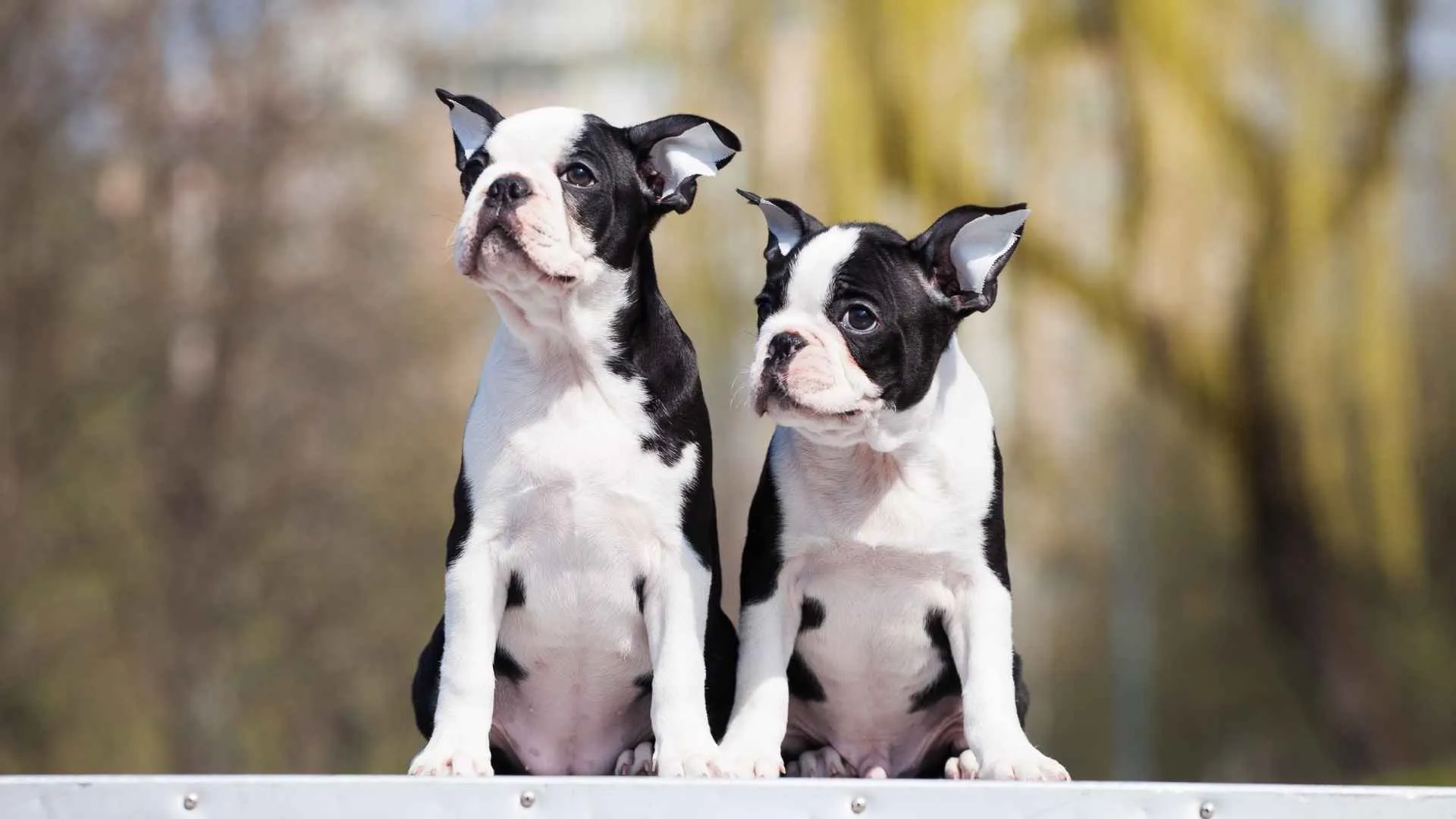
Small yet sturdy, with weights ranging from under 15 pounds to about 25 pounds, Bostons are cheerful companions who usually get along well with feline friends, especially when raised together.
Their playful nature may lead to a bit of cat-chasing, but it’s typically rooted in excitement rather than aggression, making them more endearing than alarming to their whiskered housemates.
Temperament
Boston Terriers are affectionate, sociable, and even-tempered. Their polite demeanor allows them to interact gently with both people and other animals, including cats. They thrive on companionship and enjoy a good game of fetch, but are equally content lounging by your side.
Because of their sturdy build and tolerant attitude, they’re well-suited for homes with children and other pets. When given proper socialization, Bostons are excellent at forming bonds and navigating multi-pet households with charm and ease.
Fun Fact: The Boston Terrier may bury bones under pillows or in flowerbeds, but their favorite pastime is playing fetch with their favorite humans.
Conclusion
Creating a peaceful home with both dogs and cats is absolutely possible, especially when you choose the right dog breed. Gentle, sociable breeds like the Golden Retriever and Boston Terrier often adapt well to cats living under the same roof. With proper introductions, consistent training, and a bit of patience, even playful pups can learn to respect their feline housemates and form lasting friendships.
When introducing dogs to your existing pets, it helps to choose breeds known for their easygoing nature. Breeds such as the Cavalier King Charles Spaniel, Shih Tzu, and even Basset Hounds can also be more accepting of cats and less likely to exhibit strong prey drives. Keep in mind that the personality of individual pets matters just as much as breed tendencies. By considering both dog and cat breeds that complement each other, you can foster a calm, affectionate, and truly harmonious home for everyone involved.


